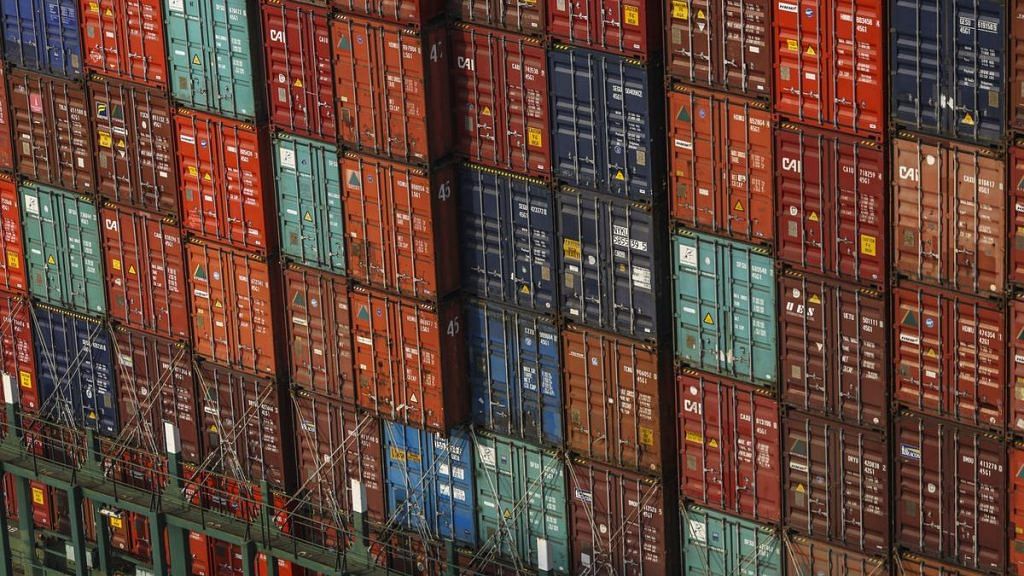Mega trade deals were once looked down upon by many developing countries as a form of economic imperialism that favoured only a few nations. But these deals are expected to get a fresh lease of life as global supply chains prove to be the lifelines during the pandemic-induced lockdown.
In India, which walked out of the ASEAN-led Regional Comprehensive Economic Partnership (RCEP) expressing concerns that such trade agreements take away jobs and widen trade deficits, the Narendra Modi government has now realised the importance of being “integrated” in global value chains and not being “isolated” as Finance Minister Nirmala Sitharaman recently said in a tweet.
Indian economy has acquired strength in its various dimensions. Now, we can confidently engage with the world. We aim at overall transformation & not incremental changes. We shall convert the pandemic challenge into an opportunity. #AatmanirbharBharat will integrate not isolate.
— Nirmala Sitharaman (@nsitharaman) May 12, 2020
It sits well with India receiving accolades for supplying critical drugs such as the hydroxychloroquine and paracetamol to over a hundred countries to fight the coronavirus.
Also read: Indonesia to Malaysia — Asia is facing a trade-off between health & economic well-being
Turning inwards
When India had withdrawn from the RCEP in 2019, PM Modi was hailed for taking the “bold move” even as the previous Manmohan Singh-led government was blamed for joining the negotiations.
Modi’s reason: It will save “lives and livelihood of all Indians, especially vulnerable sections of the society”. RCEP member countries had even started saying that they will go ahead and sign the pact “with or without India”.
And India wasn’t alone in taking such a stand. In 2017, US President Donald Trump walked out of the 12-nation trade deal called the Trans-Pacific Partnership (TPP), which was the brainchild of his predecessor Barack Obama.
Trump’s reason: It will save jobs for Americans. But it ultimately gave rise to an all-out US-China trade war.
Also read: With Modi saying ‘self-reliance’ 17 times in speech, India seems set to turn protectionist
Then came the crisis
But the coronavirus pandemic seems to have changed everything. Countries such as Australia – a key partner in the RCEP – have said that the door is still open for India to join the trade pact. The pandemic and the impact on the economy due to the lockdown is teaching a lesson to all countries that in times of an unprecedented crisis, global supply chains supported by robust value chains are key.
During his recent address to the nation, Modi stressed that India will “make the best products, will improve our quality further, make the supply chain more modern, we can do this and we will definitely do it.”
This is key because in order to be part of the global value chains via mega trade deals, India’s exports have to be world class and up to global standards.
Similarly, the US is now keen on signing a trade deal with India and may even reinstate the Generalised System of Preferences (GSP) trade benefits as a mark of gratitude for the medicine India supplied. According to sources in the Ministry of External Affairs and Ministry of Commerce and Industry, India was planning a strategy to push forward some of the pending trade deals with Australia, Israel, Canada and European Union, among others.
Also read: India must get its act together now to compete with China in post-Covid world: Thomas Friedman
Contours of a post-Covid world
While the US-China trade war might intensify in the post-pandemic world, the Trump administration will certainly give a second thought to joining the TPP back, albeit under a different nomenclature.
The TPP covered 40 per cent of the world’s economy and was negotiated in 2015 by nations such as Japan, Malaysia, Australia, New Zealand, Canada and Mexico.
According to author and The New York Times columnist Thomas Friedman, had the US joined the TPP, it would not have been alone in its fight against China.
“They (Trump administration) should (have) signed the Trans-Pacific trade agreement and brought together 40 per cent of global GDP under American trade rules around the Pacific without China. Then gone to India and Europe and joined them and then hold the Chinese for a negotiation where it would’ve been the world versus China,” Friedman said at a digital Off The Cuff conversation with ThePrint’s Editor-in-Chief Shekhar Gupta.
In the post-pandemic world, even the World Trade Organization (WTO), now regarded as defunct, may see a new lease of life as issues such as trade in essential goods, electronic commerce and seamless supply of commodities across the globe become paramount.
According to UNCTAD Secretary-General Mukhisa Kituyi, strategy trade and external finance have important roles to play as enablers of domestic economic forces. The coronavirus pandemic is an opportunity to break away from conventional but self-defeating policy prescriptions.
Views are personal.
